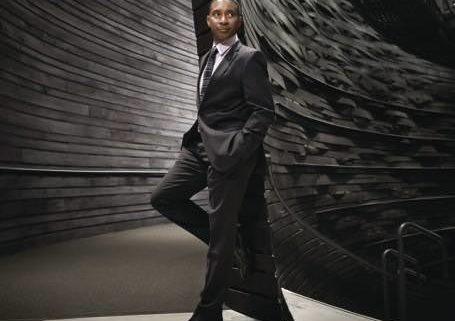Year of Living Famously
Playwright Charles Randolph-Wright redefines the boundaries of romance during wartime.
Charles Randolph-Wright can’t believe his good fortune. He’s about to introduce the world premiere of Love in Afghanistan at Arena Stage; he’s already getting overtures for screen adaptations of the play; and he recently watched musical luminaries Diana Ross, Stevie Wonder and Smoky Robinson rush the stage to praise his direction of Motown on Broadway. “The curtain call for Motown was one of those inexplicable moments—one you hope to come remotely close to once in your career,” says Randolph-Wright, who, along with producing for film and TV, is a resident playwright at Arena Stage.
Love in Afghanistan is his ninth work for Arena—previous productions have included Blue and the Pulitzer Prize-winning Ruined—and it’s by far the most daring. He read stories in The New York Times and other publications a few years ago about the Afghan practice of bacha posh, where Afghan families without sons will pick a daughter to behave and dress like a boy to gain honor and, for poor families, to obtain work. “I was mesmerized,” he says. “I wondered what happens when girls—who pretend to be boys from the age of 5—grow up. How do they navigate the world?” For most, the question is cocktail-party fodder. For Randolph-Wright, the issue is chased and cornered until it becomes a new play.
Because of suggested travel restrictions to Afghanistan, Randolph-Wright was unable to visit the country while writing. Instead, “Afghanistan came to me,” he says. “It’s one of the most inspiring things that’s ever happened to me. I’ve met so many people—Afghans and Western journalists—one of the most influential was a young woman living in the Midwest named Faheema who was bacha posh. She allowed me to see into her remarkable world.”
The play’s protagonists—Duke and Roya, a Western hip-hop artist and an interpreter who endured bacha posh—tangle with love amid war’s upheaval. Randolph-Wright explains, however, that the play’s title isn’t merely a reflection of human adoration. “It’s about love of country, too,” he says. “Most of us look at Afghanistan as over there. And it’s not—it’s now part of us. If I can’t change the world, I want to influence the people who can. DC is the perfect place for this play. Art is the salve that heals our wounds.”




Leave a Reply
Want to join the discussion?Feel free to contribute!